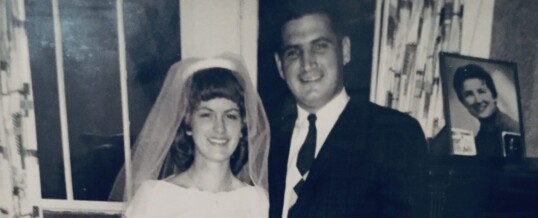
There were things my dad wanted that I was able to help him get.
Including autographs from Carl Perkins and James Doohan (Scotty from Star Trek), tickets to see Lewis Grizzard, and a golf cart.
But one thing he really wanted that I couldn’t get for him was information on who he was. Who we are.
Our ancestry.
Before he passed, I purchased memberships for him and my mother with one of the online DNA companies.
My mom’s side of the family paid in dividends, connecting us to kinfolk we almost assuredly would have never met otherwise.
But on my dad’s side, not so much. Little accurate information was found on my father’s family. Such was the case his entire life.
The family Bible was once the go-to source for births, baptisms, marriages, and deaths. Usually holding a prominent place in the home, the Bible was there, generation to generation, serving as a reference.
Absent the family Bible, there just wasn’t much to go on before around 1900.
Unlike England, and other European countries, which are hundreds of years old, America is still in its infancy when it comes to history.
The area where my dad was born in southwest Arkansas wasn’t significantly settled until the late 1800s. So, the local courthouses didn’t start record keeping until then.
Even then, not every family felt the need to record births, marriages or deaths. It was recorded in the family Bible.
But we had stories.
When I was born in Ashdown, Arkansas, in the early 1960s, my dad’s grandfather was still living.
Thornton Moore was a blacksmith and was one of multiple children. He died when I was seven, but I remember him being in the nursing home, and I remember the stories he shared about why our family information just stopped.
Papa Moore was what we called him. His family was traveling in a covered wagon from somewhere back east. We thought it was somewhere in the Carolinas.
They made it into Arkansas when his mother was taken ill during a flu pandemic and died. Papa Moore’s father sallied forth with the kids, on his way to a now unknown destination.
His dad stopped to help roof a barn for some extra money and he also got the flu and died.
The children were taken into the nearest town so that local families could choose one or two to take in as their own.
What I was told later was that most families took in orphans so that they could work them on the farm like pack mules, while their own kids took it easy.
Today, kids are protected. Back then, they weren’t.
My grandfather’s brother, Solon, wanted to know more about who we were, who we’d been, and how we got there. So, he went to Dardanelle, a town in Yell County, Arkansas. It was a place my great grandfather remembered.
As my Great Uncle Solon told it, he went into a little cafe and shared that he was there to try and find some of his family members. Someone asked him his last name. When he said, “Moore,” he was told the best place to start was the county jail.
It’s funny now, but it wasn’t then.
But even if your family history isn’t great, you’d still like to know it. Warts and all.
So, that’s the frustration. I thought for sure that the new DNA systems; Ancestry, 23andMe, and the others would throw back the curtain. But the curtains are still mostly closed.
What we did learn is that what we’d assumed about the Carolinas was correct. Most of our ancestors (69%) came over from England in the 1700s.
I joked with my dad that I questioned even that since we didn’t sound British at all.
But my dad passed without knowing the bigger pieces of who we were, where we’d been, and how we got there.
There’s over 100 years of our American heritage that’s unknown, and far more before that.
I watch a show on PBS where a celebrity finds out all about their heritage. They need to do a raffle for us regular folk so that we can get a shot at these worldwide archives and researchers.
My dad’s gone on to his great rewards. One of those might be knowing whether or not our ancestors spent most of their time in pursuit of great things, or in the Yell County Jail.
Me? I’d just like to know Moore.
©2024 John Moore
John’s books, Puns for Groan People and Write of Passage: A Southerner’s View of Then and Now Vol. 1 and Vol. 2, are available on his website TheCountryWriter.com, where you can also send him a message.
MAR
2024
